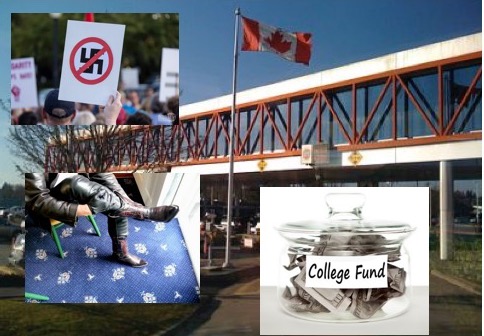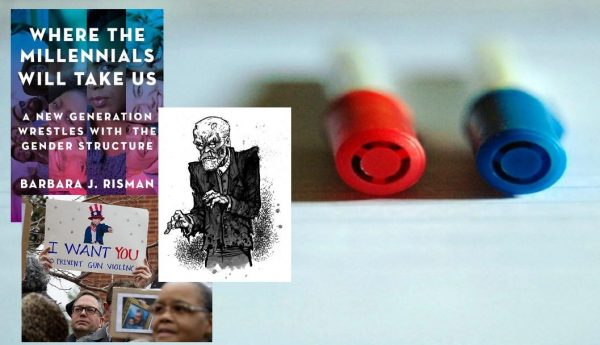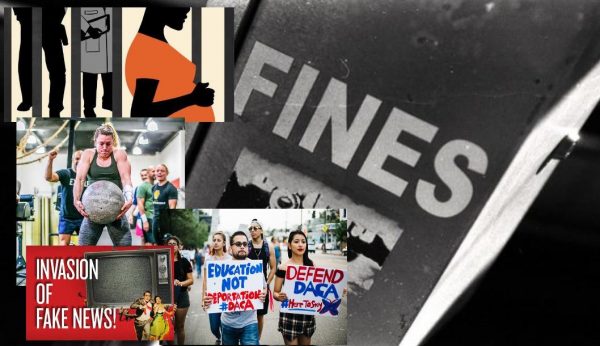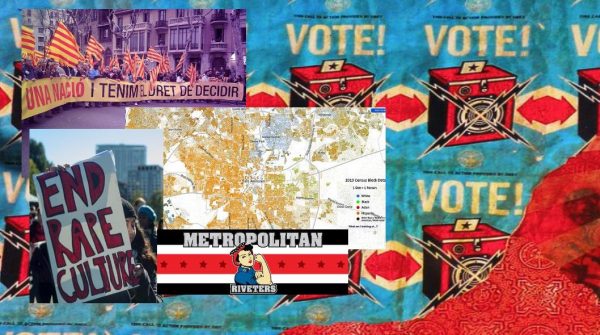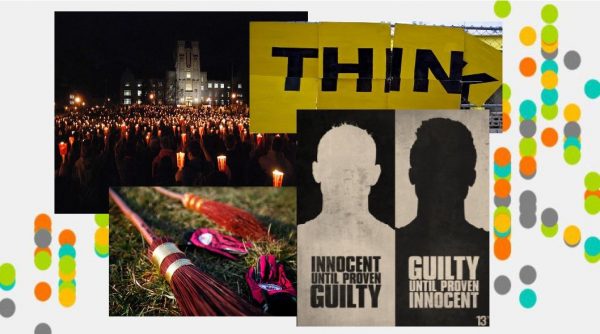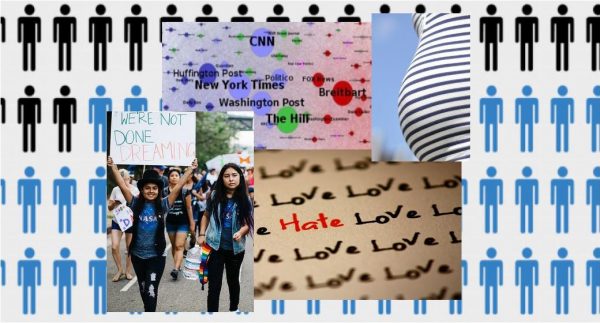
Thanksgiving break once again provided me with some time for reflection mingled in with all the feasting and football. This year I found myself dwelling upon two rather random bits of reading I had come upon in earlier in the month. One was the reviews of a new biography of Laura Ingalls Wilder, she of “Little House on the Prairie” fame. The other was a small series of confessions on my social media feed from sociologists who “admitted” to being fascinated with or even inspired by Ayn Rand’s The Fountainhead in adolescence. Both Wilder and Rand, their stories and the worldviews embedded in them, have long held sway over me and (I think) many Midwestern, middle class folks like me.
When many of my ilk and generation think of “Little House,” they recall the 1970s NBC television series featuring Melissa Gilbert as the young Laura and Michael Landon as “Pa.” But for me it is the books. I remember my second grade teacher, Miss Froemsdorf, reading through the series to us in afternoon break times and study halls. In my faded, fuzzy, and probably totally erroneous memory, it seems like my classmates and I spent the entirety of our primary years at Trinity Lutheran listening to the stories from Little House in the Big Woods onward.
Was that even possible? Could we possibly have devoted that much classroom time to listening to these books rather than studying multiplication tables or learning to read and write? Probably not, but my recollection reflects as much on the power of the stories as the accuracy of memory. And indeed what captured my imagination and thus represents such an essential aspect of my elementary school education was Pa’s restlessness, his relentless (if often ill-fated) desire for land of his own, his drive for independence–and the almost complete and utter devotion of his wife and girls to the cause. This was the freedom and self-reliance I was learning to revere. The pioneering, frontier spirit made manifest. American individualism at its finest.
I didn’t really read and engage the works of Ayn Rand until the summers of my early college years. This was when “objectivism” was experiencing one of its periodic renaissances among conservative students on campus during the Reagan era. Remember the Oliver Stone movie “Wall Street?” “Greed is good,” Michael Douglas’ Gordon Gekko told us. By then, I was a bit more inclined to be critical. Still, it wasn’t hard for me to see the appeal, to see how that self-reliant worldview –buttressed by Rand with an unrelenting celebration of the magic of markets and overt attacks on the state–would speak to my grade school self, my inherited midwestern German Lutheran sensibilities.
How to make sense of these works and ideas now? First and most important is to point out all that is missing from these romanticized visions of America and social life more generally: the institutional and technological complexities of modern society; the power of industry (especially railroads and banks and other titans of industry in “using” settlers to create towns and tame land that they knew was not fit for farming); the government role in regulating–and indeed making–markets; cities, technology, supply chains. And this is not to mention poverty and inequality, the dispossession and near extermination of Natives Americans, the great violence of the military, and the realities of hard lives full of death, disease, debt, devastations of all kinds for the masses. I’m talking, in short, of the invisibility of all things sociological.
That said, those of us who care about “the social” need to remember the deep, enduring appeal of these books and stories. Limited and problematic as they may be, stories about families like the Ingalls or of Howard Roarch or Horatio Alger embody in narrative form the core values and beliefs of vast swaths of our citizens and the nation itself. They are the vehicles by which the values of self-reliance and competition and individual responsibility have been inculcated in so many of us, and become such a deep, enduring part of our selves. In fact, I realize now that a great deal of my intellectual development in college and then graduate school was unlearning (or at least complicating) the intuitive logic of these ideas, remaking my own intuitive, organic sensibilities and beliefs.
I pondered these themes over a weekend where I heard and saw friends all over the country posting thoughts about “being thankful” and “feeling blessed.” Yes, yes–such sentiments are appropriate. But thankful for what and blessed by whom? Is it ourselves, our individual selves? Perhaps. For many Americans, such sentiments also go to some larger, less easy to explain force or powers. Again, fine as far as it goes. But gratitude is also, I’m convinced (and I think we too often neglect to realize or acknowledge this), about us as communities. All of us have tons of support and assistance from others along the pathways of our lives. We don’t do it on our own. Ever. There are many others around us, upon whom each of us depends and relies. We should be thankful for and feel blessed by all of these folks, and of the communities in which we are all embedded.
And thinking about others brings me to one other point. It also gets me thinking about those of us in America and all over the world who haven’t been so blessed or so lucky. What do we think of them? Do we turn a blind eye? Do we blame them for their own misfortune, or even for other problems in our communities? Too often, I’m afraid that’s exactly what we do. I wish we could do better. And I wonder whether an understanding of thankfulness more attentive to others might not also help make us feel thankful but act in more generous and compassionate ways to others, towards those whom our religious icons have often called “the least of these.”
There is an episode in one of the recent reviews of the Ingalls biography where either Laura or her daughter Rose (who did so much to bring the Little House books to fruition) bring an interviewer down to the fruit cellar of their farm house to show them all of the produce that has been bottled and canned and put away for the winter. “This,” they tell the interviewer, “is all the welfare we need.” I am convinced the Ingalls women totally believed this–and believed that canned food for the winter is all anyone else needed or could ask for as well. Heck, this is a family who suffered through and saw many family and friends die difficult deaths of famine and disease; this was a family who even believed that a plague of grasshoppers who destroyed their crops in the 1930s was divine retribution for the New Deal. They lived their self-reliance. However, I also believe it doesn’t have to be that way. I believe that we, together, can do better.
In other words, I ended my weekend thinking not about being thankful as an individual, but rather by looking for hope for our collective lives together.

